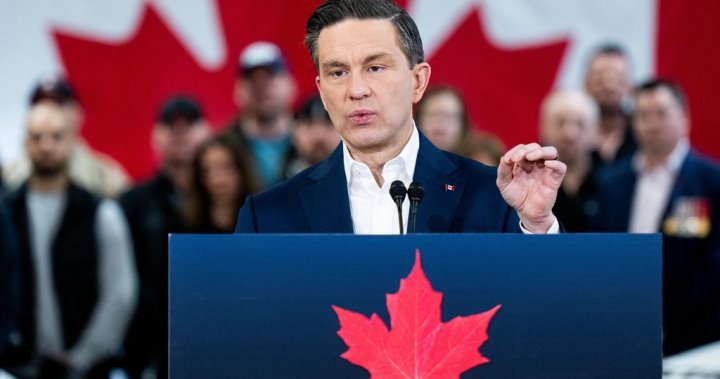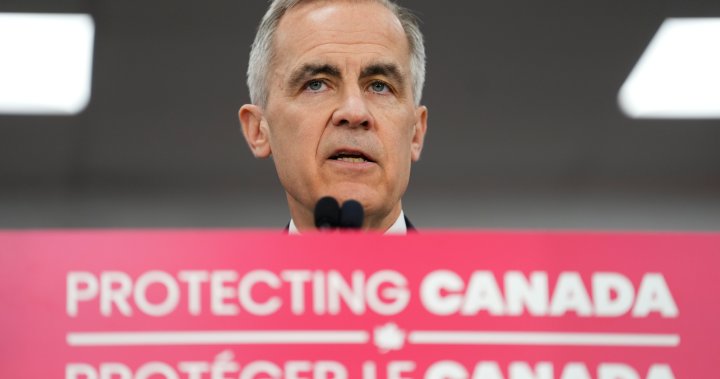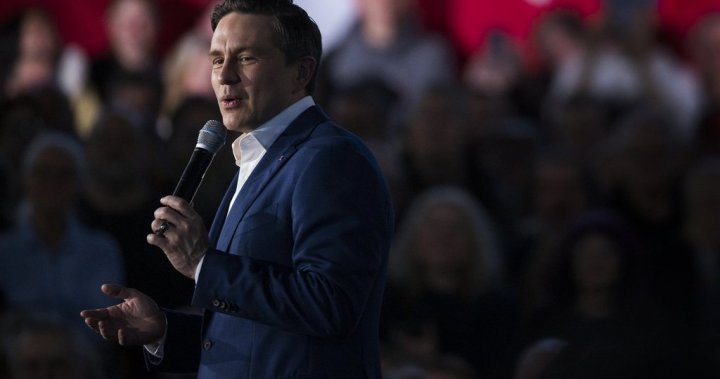Trump backs permanent daylight saving time. Could it lead to a change? – National

U.S. President Donald Trump has picked a side in the long-standing debate over daylight saving time, saying Friday he wants to see clocks in the U.S. permanently sprung forward.
Trump posted his take on Truth Social a day after U.S. senators held a hearing on eliminating the twice-annual time change and whether to keep more daylight in the morning or evening hours.
“The House and Senate should push hard for more Daylight at the end of a day,” Trump wrote. “Very popular and, most importantly, no more changing of the clocks, a big inconvenience and, for our government, A VERY COSTLY EVENT!!!”
The new comment marked a change from last month, when Trump declined to weigh in on the debate, calling it a “50/50 issue.”
“If something is a 50/50 issue, it’s hard to get excited about it,” he told reporters in the Oval Office in March. “I assume people would like to have more light later, but some people want to have more light earlier because they don’t want to take their kids to school in the dark.”
Trump had vowed in December he would “eliminate” the time change.
Friday’s statement and Thursday’s Senate hearing could further add momentum to a cross-border debate that has stalled for some years now. Some Canadian provinces have sought to make daylight saving time permanent but were waiting for U.S. states in their time zones to do the same.

British Columbia passed legislation in 2019 to enact permanent daylight saving time, followed by Ontario in 2020. Quebec launched public consultations last year on a permanent time change.

Get daily National news
Get the day’s top news, political, economic, and current affairs headlines, delivered to your inbox once a day.
Although all three U.S. states in the Pacific time zone — Washington, Oregon and California — have passed their own permanent daylight saving time bills, Congress would have to approve a federal bill to allow states to make the change, leaving B.C.’s legislation in limbo.
The U.S. Senate passed just such a bill in 2022, the Sunshine Protection Act, but it died in the U.S. House of Representatives. Sen. Rick Scott of Florida, whose state voted for permanent daylight saving time in 2018, has reintroduced his legislation with 17 co-sponsors.
“The American people are sick and tired of changing their clocks twice a year,” Scott, a Republican, told Thursday’s hearing at the U.S. Senate commerce committee. “It’s confusing, unnecessary and completely outdated.
“It’s an understatement to say that our nation has changed since the United States began changing the clock over a century ago.”
States began seasonal one-hour changes in 1918 during the First World War, and most of the U.S. had adopted the practice by the 1960s, with Canadian provinces and territories following suit. Yet farmers and other advocates have long fought for an end to clock-switching.

The National Conference of State Legislatures reports that in the last six years, 20 states have passed measures calling for a switch to year-round daylight saving time. Yet lawmakers in more than a dozen states have introduced bills this year to make standard time permanent.
Senators on Thursday wrestled with whether to make standard time or daylight saving time permanent and heard from witnesses on both sides of the debate.
Jay Karen, CEO of the National Golf Course Owners Association (NGCOA), said moving to permanent daylight saving time could add 23 million rounds of golf annually and boost revenue by US$1 billion, while permanent standard time could cut 53 million total annual rounds.
He said similar benefits would be seen for other recreational industries like soccer and baseball.
Trump is an avid golfer, and the Trump Organization’s U.S.-based golf clubs are members of the NGCOA, which has lobbied the U.S. and state governments for permanent daylight saving time.
Trump has travelled to his resorts in Florida and New Jersey to play golf nearly every weekend since returning to the White House in January — including last week for a Saudi Arabia-backed championship as financial markets plummeted in reaction to his global “reciprocal” tariffs.
Karin Johnson, a professor of neurology at the University of Massachusetts, urged senators Thursday to make standard time permanent, saying at the hearing that it “aligns with our natural circadian rhythms, improves health, safety, and productivity, and eliminates the harmful and unpopular effects of seasonal clock changes.”
Sen. Ted Cruz of Texas, who chairs the Senate commerce committee, said there were “very real and complicated issues and countervailing arguments on both sides,” and that the issue was not whether or not to permanently set the clock but “where to lock it.”
He said he was not sure how he would proceed after the hearing.

Canadian provinces that have passed permanent daylight saving time legislation have said they wanted to wait for neighbouring U.S. states to come along to avoid business disruptions. But Trump’s trade war with Canada has further complicated the issue.
B.C. Premier David Eby said last month he would be willing to go it alone with the time change as provinces become more self-reliant economically.
“My usual response to this is that our biggest trading partner and group of people that we want to stay in sync with has not yet changed their clocks,” Eby said.
“But yeah, it’s open to the new world that we’re in that we stand on our own two feet as a province in relation to everything, including time zones,” he said with a chuckle. “I’ll ponder that one.”
— with files from Global’s Simon Little and Reuters
© 2025 Global News, a division of Corus Entertainment Inc.








